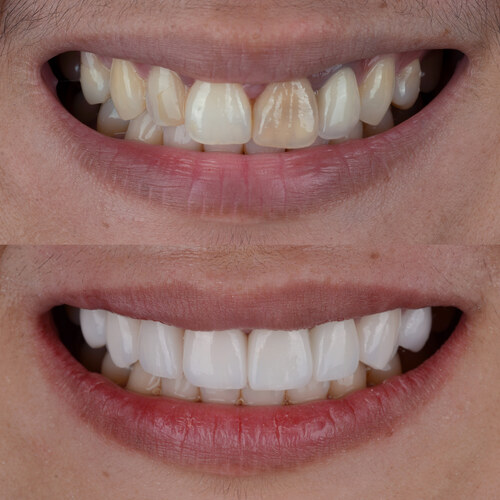Root Canal Treatment – RCT Prevention is better than cure
A root canal treatment is a dental procedure that is performed to treat a tooth that has become infected or damaged. During the procedure, the dentist removes the infected or damaged pulp from the inside of the tooth, cleans and disinfects the area, and then seals the tooth to prevent further infection.
Here are some common signs that you may need a root canal:
- Severe tooth pain: If you are experiencing persistent tooth pain, especially when biting or chewing, it may be a sign that the pulp inside your tooth is infected or damaged.
- Sensitivity to hot or cold temperatures: If your tooth is sensitive to hot or cold temperatures, it may be a sign that the pulp inside your tooth is inflamed or infected.
- Swollen gums: If the area around the affected tooth is swollen or tender, it may be a sign of infection.
- Discoloration: If the affected tooth is discolored, it may be a sign that the pulp inside your tooth is dead or dying.
If you are experiencing any of these symptoms, it’s important to see your dentist right away. Delaying treatment can lead to further complications, such as abscesses, bone loss, and even tooth loss.
During a root canal treatment, your dentist will first numb the area around the affected tooth with a local anesthetic. They will then make a small hole in the top of the tooth and remove the infected or damaged pulp. The area will be cleaned and disinfected, and then sealed with a filling or crown.
After the procedure, you may experience some discomfort or sensitivity for a few days, but this can usually be managed with over-the-counter pain medications. You should avoid chewing on the affected tooth until it has fully healed.
With proper care, a tooth that has undergone a root canal treatment can last a lifetime. To prevent further damage, it’s important to practice good oral hygiene habits, such as brushing twice a day, flossing daily, and seeing your dentist regularly for checkups and cleanings.
Root Canal Treatment – RCT Prevention is better than cure Read More »


